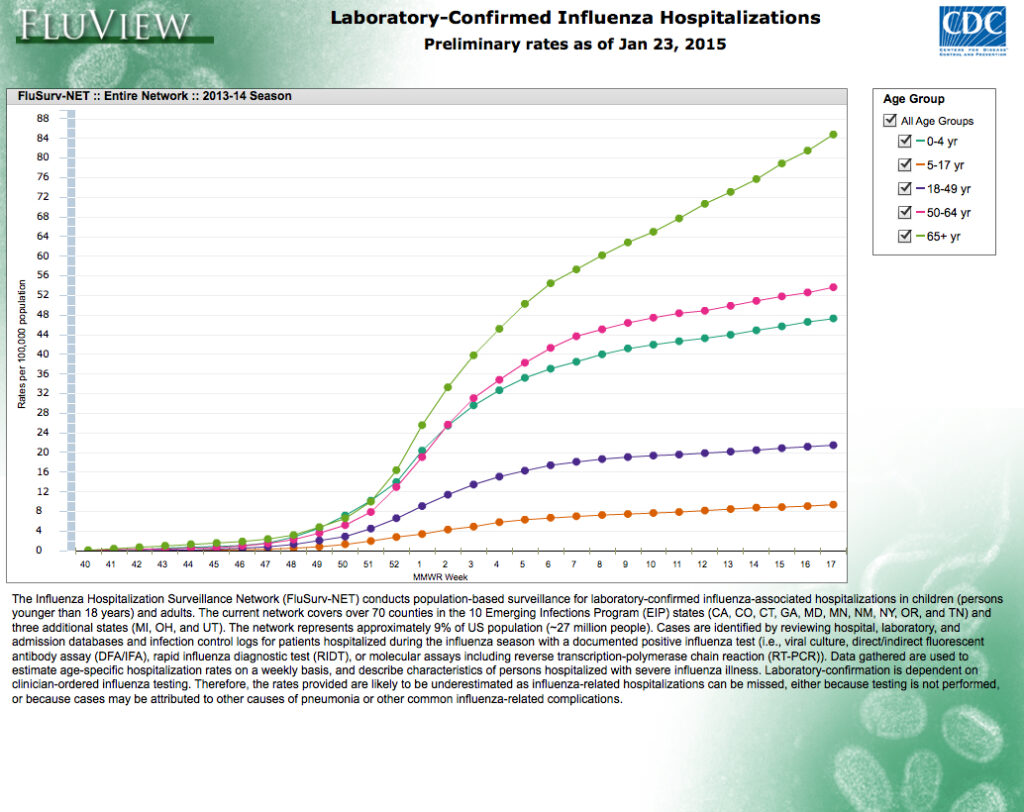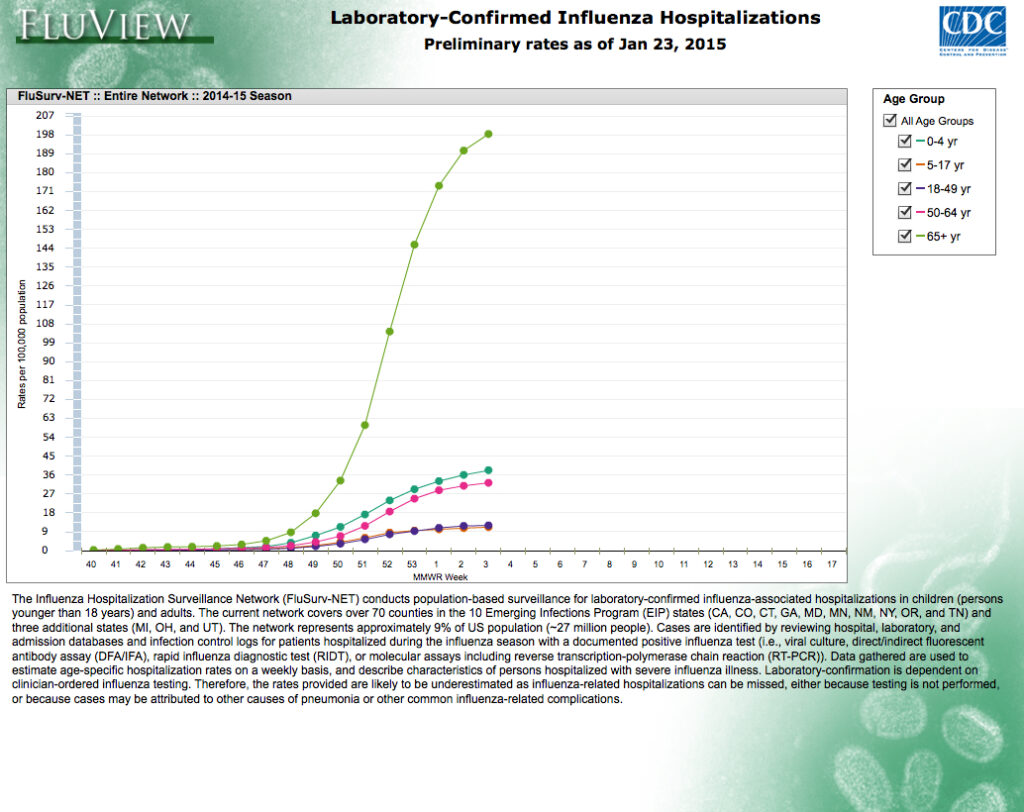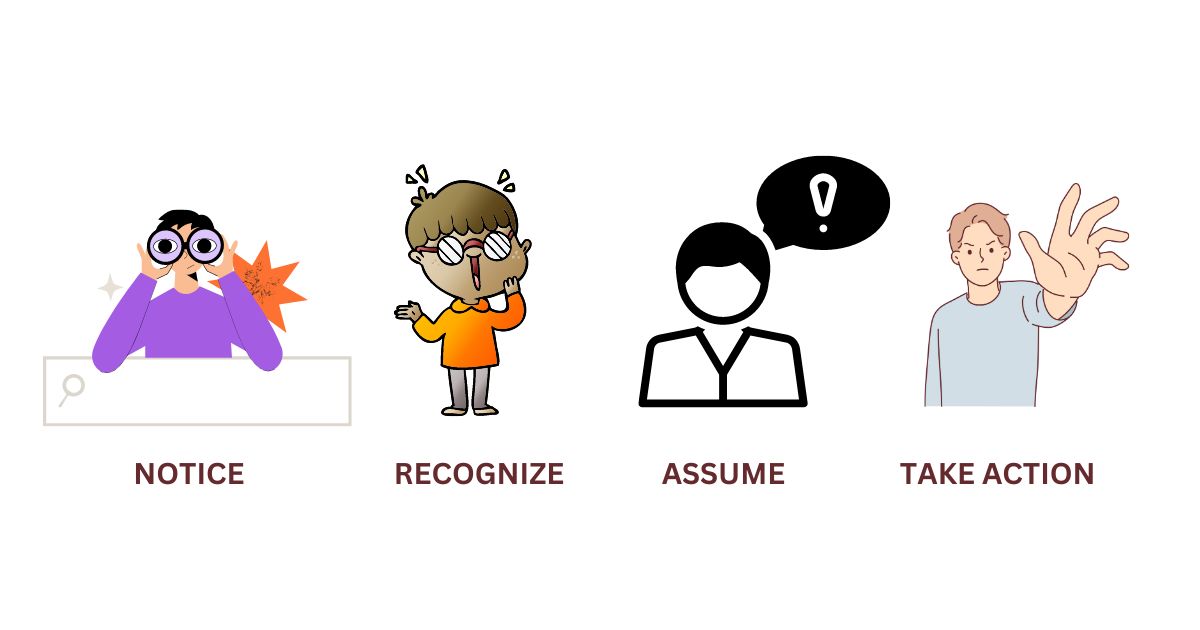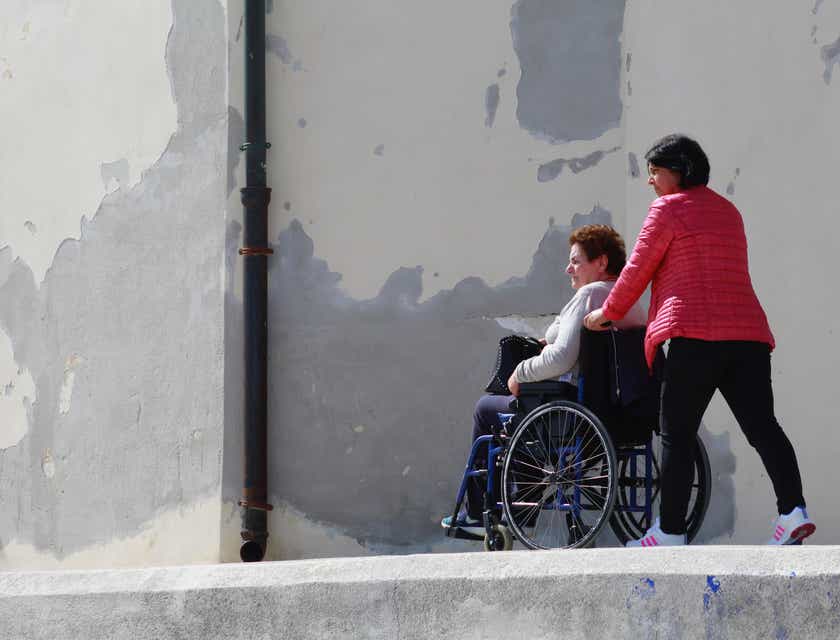It’s a well-known fact that people 65 years and older are at greater risk of serious complications from the flu than their younger counterparts. According to the Center for Disease Control and Prevention, it’s estimated that between 50 and 60 percent of seasonal flu-related hospitalizations in the United States occur in seniors.
The CDC release the new flu numbers on Friday showing a record high amount of flu hospitalizations among the senior population. In fact, the numbers are the highest since the agency started tracking the numbers nine years ago.
About 198 out of every 100,000 people 65 and older have been hospitalized with flu-related illness this season. The next highest rate was for the 0-4 year old group with about 38 out of 100,000. Compare that to last year’s numbers, when, at the same time in the year, only about 40 out of every 100,000 elderly were hospitalized with flu-related illness.

Click on image for larger, interactive view
Because immune defenses weaken as we age, the flu can be a real danger; seniors comprise an estimated 90 percent of all seasonal flu-related deaths. On average, about 24,000 Americans die each flu season, according to the CDC. While flu vaccinations don’t guarantee a flu-free season, (the CDC reported that the flu vaccine is only 23 percent effective this winter,) Fluzone, a higher-dose flu shot developed specifically for older adults, is designed to give people a better immune response, thereby providing better protection against flu.
Those who are considered at high risk of developing serious flu complications are those with:
- Asthma
- Blood disorders (such as sickle cell disease)
- Chronic lung disease
- Endocrine disorders (such as diabetes)
- Heart disease (such as congenital heart disease, congestive heart failure and coronary artery disease)
- Kidney disorders
- Liver disorders
- Morbid obesity (body mass index [BMI] of 40 or higher)
- Weakened immune system due to disease or medication (such as people with HIV or AIDS, cancer, or those on chronic steroids)
If you see your senior client or care recipient developing any flu symptoms, act fast and get them medical attention. Antiviral drugs can be used to manage and treat flu in the elderly before serious complications develop. Look out for fever, cough, sore throat, runny or stuffy nose, headache, body aches, chills, fatigue, and sometimes vomiting and diarrhea.
Caregivers should take extra precautions as well. The CDC especially recommends that anyone working with older adults get vaccinated to help prevent the spread of influenza, especially if they work in a long-term care facility.
Caregiverlist hopes that seniors and their caregivers stay safe and healthy all year, but especially during this dangerous flu season.








